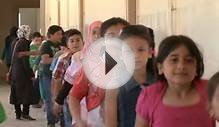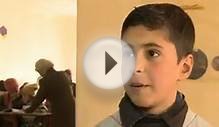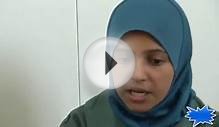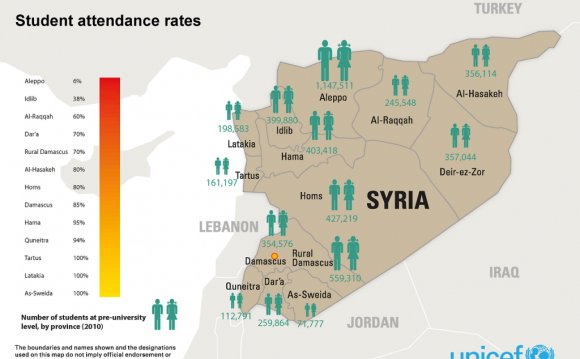
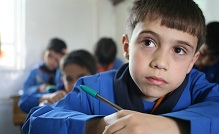 Copyrighted picture Copyright: Lion television
Copyrighted picture Copyright: Lion television
Syria makes a substantial investment in training, since is demonstrated by its exemplary literacy rates - about four-fifths of Syrian population is literate. Once the Ba'ath took control over Syria in Sixties, training became a high priority, utilized as a way of ensuring development and also at once exercising a stronger influence within the public.
Syrians price the necessity for education and intellectual development. General public demand for knowledge has actually remained powerful, reflecting the necessity of education as a way of personal progress. Alert to the additional value of training towards world of work, the government will continue to innovate and update the education system being produce an experienced and competent staff to meet up with the economic and personal needs of Syrians. Inside community and exclusive sectors there clearly was a powerful belief that sustained staff member development and instruction sometimes appears as a good investment for future generations.
Knowledge spending
The Syrian government funds education anyway levels, notably boosting the percentage of the complete expenditure from 12.6 % in 2000 to 15.7 % in 2005. During this time, the proportion of knowledge spending to GDP increased from 2.7 percent to 4.3 percent.
Syria’s academic aspirations
Knowledge in Syria is managed and run by the state; the Ministry of Education outlines the curriculum, sets the training aims and outcomes and the training product and help. In 1981, the federal government passed a law making knowledge free and compulsory for several Syrian children from grades 1 to 6.
Copyrighted picture Copyright laws: Lion TVThe training system in Syria
Lessons are taught in Arabic, with English and French taught as the first and 2nd international languages. Based on the 2007 census, 98 percent of schools in Syria tend to be state-run against 1.8 percent that are private. In 2007, there have been 8 million students in the knowledge system of Syria (4 million in main training, 1.4 million in secondary and 2.3 million in higher). Given the current growth price in the school-age populace, approximately by 2015, the education system in Syria will need to allow for an extra one million students in main and secondary knowledge.
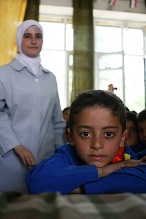 The school system in Syria is divided in to primary and secondary knowledge levels; education includes 6 several years of major training followed by a 3-year general or vocational education duration and a 3-year scholastic or vocational programme. The second 3-year period of educational education is necessary for institution entry. Schools are divided into three amounts:
The school system in Syria is divided in to primary and secondary knowledge levels; education includes 6 several years of major training followed by a 3-year general or vocational education duration and a 3-year scholastic or vocational programme. The second 3-year period of educational education is necessary for institution entry. Schools are divided into three amounts:
- 1st to 6th level: main Education amount
- seventh to 9th class: Lower Secondary knowledge degree
- tenth to twelfth level: Upper Secondary knowledge, equal to the sixth-form in britain
Final exams associated with 9th quality tend to be set nationally and generally are taken in addition. Caused by these examinations determines if pupil moves towards the secondary schools or even to the vocational additional schools. Vocational secondary schools include those for male students studying industry and farming, crafts and arts college for feminine pupils, and business and computer science schools for both.
At the start of the 11th quality, people who go to secondary school must select whether to study either Arts or Sciences. The ultimate exams associated with 12th grade (the baccalaureate) may also be set nationwide and they are all taken in addition. The result of these exams entitles the pupil usage of institution based on his or her group of baccalaureate.
Discipline
Discipline in school follows a universal method in Syria. Pupils get a number of warnings, then the moms and dads tend to be brought in for a talk, and lastly the pupil is suspended for a few times if things still cannot improve.
Copyrighted picture Copyright laws: Lion television
Degree
Universities in Syria are generally overcrowded. There are in reality a lot of pupils for too little universities and facilities. When it comes to training, many universities in Syria stick to the French style of advanced schooling. The university stages while the scholastic degrees tend to be:
- Undergraduate: the ‘Licence’ granted after 4 years to 6 years with regards to the topic of research.
- Postgraduate: the DEA or DESS - 1-2 12 months postgraduate level equal to the Master's level in Uk - American methods.
- Postgraduate: the doctorate - 3-5 years after on through the DEA or a comparable degree.
Conclusion
The rapid populace growth is regarded as huge challenges facing the nation. Including, the battle to control the growing jobless price, especially amongst teenagers suggests that knowledge continues to be one of the government’s top priorities in Syria. Over the past decade, Syria features introduced bold reforms to develop a higher quality of knowledge and improve the existing infrastructure. Boosting the typical of living for Syrians through much better economic and personal circumstances is one of many government’s primary goals.
Find out about education
Knowledge is a vital focus regarding the 2015 Millennium developing Goals. This program explores the relationship between education and development, and helps you analyse and work on knowledge techniques and operations in establishing and transition countries.
This masters-level program explores present debates into the quickly altering field of language and literacy, and examines the relevance of study and grant to educational policy and training. Its international focus and focus on social perspectives will enable you to gain a deeper knowledge of language and literacy in use, also to discover methods of making yours analyses.
RELATED VIDEO
